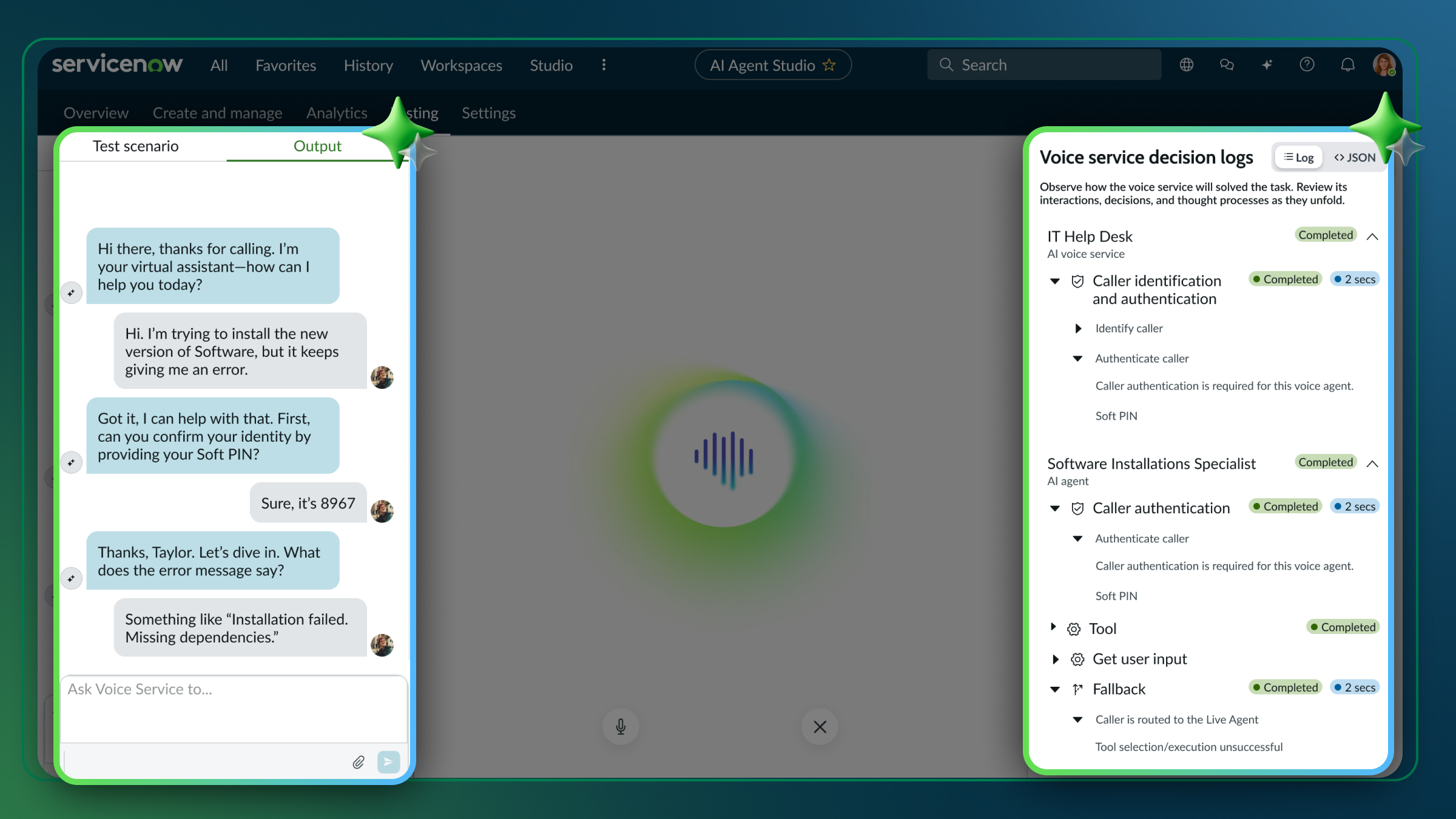
ServiceNow today added a framework for building, deploying and managing artificial intelligence (AI) agents that are deployed on its Now software-as-a-service (SaaS) platform.
Dubbed the AI Experience, the goal is to provide end users with a consistent set of contextware interfaces for invoking and governing AI agents, says Amit Zavery, president, chief product officer and COO for ServiceNow.
ServiceNow, as part of that effort, is also making available a set of AI agents it has developed, including AI Voice Agents to provide a hands-free method to retrieve information, update records and troubleshoot issues and AI Web Agents that learn how to complete tasks such as filling out forms by learning from humans.
There is also an AI Data Explorer agent that connects insights across ServiceNow and external data sources via the ServiceNow Workflow Data Fabric and AI Lens, an agent that can automate tasks based on the data that is currently surfaced on a screen, form or dashboard.
The AI Experience is an extension of Now Assist, an AI framework that ServiceNow already provides to embed generative AI capabilities into workflows. AI Experience adds a common user interface for accessing data, AI models, AI modalities and workflows, says Zavery.
At the core of those workflows is AI Control Tower, a central hub that ServiceNow launched early this year to govern, monitor and manage any native or third-party AI software running on its platform.
ServiceNow is already moving to embed AI Experience into workflows, including a new version of a Configure, Price, Quote (CPQ) application due out later this year that embeds AI into workflows to generate price quotes faster.
It’s not clear to what degree organizations are starting to operationalize AI agents, but ServiceNow is making a case for an integrated platform that makes it simpler to unify the management of multiple workflows that all share access to the same data. Rather than having to integrate disparate platforms and tools, ServiceNow contends its platform reduces the total cost of IT. “Employees are drowning in disparate tools,” he says.
In the age of AI, IT organizations will now more than ever need a platform that reduces the number of tools employees currently require to manage increasingly complex workflows, he adds.
While there is no doubt at this point that AI agents will soon transform the way a wide range of tasks are currently managed, how those workflows will be constructed is very much still a work in progress. AI agents will undoubtedly become digital members of teams that are assigned tasks to be completed, but the degree to which they will be trusted to reliably perform them remains to be seen.
In the meantime, however, savvy organizations should be identifying now rote tasks that might soon be better performed by an AI agent with an eye toward appreciating the fact that there may soon be thousands of AI agents that organizations will need to manage. The impact those AI agents will have on each organization will, of course, naturally vary, but the one thing that is certain is that almost no job role today is going to ever be the same again.


